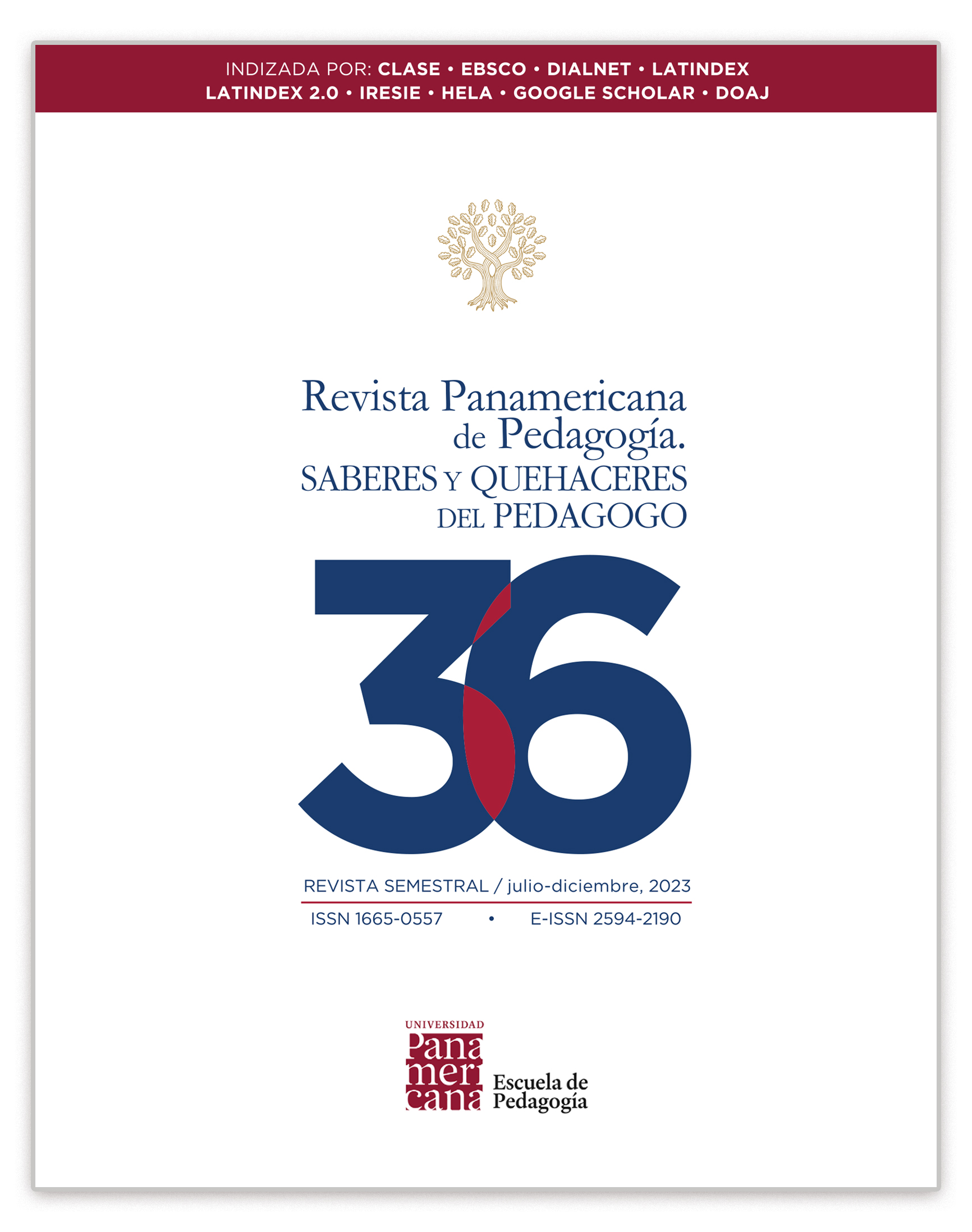Published 2023-06-23
Keywords
- Gender,
- Laughter,
- Feeling,
- Emotion,
- Function

This work is licensed under a Creative Commons Attribution-NonCommercial-ShareAlike 4.0 International License.
How to Cite
Abstract
This text is approaches and reviews the similarities and differences in the perception of laughter according to gender, by survey research with 458 students in Mexico City in the year 2018. How laughter is experimented in their lives, how do they refer to laughter, what are their general insights, their perceptions, experiences and evaluations and above all, how does laughter to their feelings, emotions and needs. Results show that laughter mostly represents a feeling of joy to women and a sense of satisfaction for men. Although in other perceptions of laughter there are many similarities between males and females. In addition, its important role in the educational process is considered, by both genders.
References
- Acuña Ferreira, V. (2014). Las funciones competitivas del humor en los cotilleos de jóvenes veinteañeras, Feminismo/s, 24, 9-14. https://www.researchgate.net/profile/Leonor_Ruiz_Gurillo/publication/280578157_Genero_y_humor_en_discursos_de_mujeres_y_hombres/links/55bbad0808ae092e9660aeca/Genero-y-humor-en-discursos-de-mujeres-y-hombres.pdf
- André, Ch. y Lelord, F. (2012). La fuerza de las emociones. Kairós.
- Berger, P. (1999). La risa redentora. La dimensión cómica de la experiencia humana. Kairós.
- Bergson, H. (2008). La risa. Ensayo sobre la significación de lo cómico. Alianza Editorial.
- Casafont, R. (2014). Viaje a tu cerebro. Ediciones B.
- Corrales Zumbado, C. (1991). El estudio de los campos semánticos, Revista de Filología, 10, 79-93. https://www.academia.edu/.../Definiciones_del_concepto_campo_en_semántica_antes.
- Chittister, J. (2012). La felicidad. SalTerrae.
- Corvalán, J. (2018). El fundamento epistemológico común del análisis estructural y de la antropología cognitiva, Cinta moebio, 63, 391-405. https://cintademoebio.uchile.cl/index.php/CDM/article/view/52327
- Csizszentmihalyi, M. (2008). Fluir. Una piscología de la felicidad. Kairós.
- Damasio, A. (2006). El error de Descartes. La emoción, la razón y el cerebro humano. Crítica.
- Drukpa, G. y Adams, K. (2015). La felicidad empieza en tu mente. Sirio.
- Fernández Poncela, A. M. (2016). La investigación social. Trillas/UAM.
- Fernández Poncela, A. M. (2016). Humor en el aula. Trillas.
- Fernández Solís, J. D. (2003). El sentido del humor como recurso pedagógico: Hacia una didáctica de las didácticas, Pulso, 26, 143-157. https://dialnet.unirioja.es/descarga/articulo/499176.pdf
- Fernández Solís, J. D. (2008). Pedagogía del humor. En Rodríguez Idígoras (Ed.) El valor terapéutico del humor, pp. 65-88. Desclée De Brouwer.
- Freud, S. (2008). El chiste y su relación con el inconsciente. Alianza Editorial.
- Fry, W. F. (1993). Medical perspectives on humor, Humor & Health Letter, 2(1), 1-4. www.michael-titze.de/content/texte_fr/text_fr_01.html
- Jáuregui, E. y Fernández Solís, J. D. (2009). Risa y aprendizaje: el papel del humor en la labor docente, Revista Interuniversitaria de Formación del Profesorado, 66(23,3), 203-215. https://www.redalyc.org/articulo.oa?id=27419066011
- Lakoff, R. (1975). Languages and Woman´s Place. Oxford University Press.
- Lyubomirsky, S., King, L. & Diener, E. (2005). The benefits of frequent positive affect: does happiness lead to success, Psychological Bulletin, 131(6), 803-855. https://www.apa.org/pubs/journals/releases/bul-1316803.pdf
- Montañés Sánchez, M. V. (2018). El humor, la risa y el aprendizaje del ELE: una revisión desde la psicología y la didáctica, ENSAYOS, 33(1), 129-143. https://www.revista.uclm.es/index.php/ensayos/article/download/1568/pdf
- Martínez, M. (2003). Definiciones del concepto campo en semántica. Antes y después de la lexemática de E. Corseriu, Odisea, 3, 101-130. https://core.ac.uk/download/pdf/143458206.pdf
- Maslow, A. (1982). La amplitud potencial de la naturaleza humana. Trillas.
- Mora Ripoll, R. y Ubal López, R. (2010). La risa: diferencias según género, Revista Clínica Española, 211(7), 360-366. www.elsevier.es/index.php?p=revista&pRevista=pdf-simple&pii...r=335
- Muñoz Polit, M. (2009). Emociones, sentimientos y necesidades. Una aproximación humanista. IHPG.
- Mura, Á. y Ruíz, L. (2014). Introducción, Feminismo/s, 24, 9-14. https://www.researchgate.net/profile/Leonor_Ruiz_Gurillo/publication/280578157_Genero_y_humor_en_discursos_de_mujeres_y_hombres/links/55bbad0808ae092e9660aeca/Genero-y-humor-en-discursos-de-mujeres-y-hombres.pdf
- Punset, E. (2006). El viatje a la felicitat. Les noves claus científiques. Columna, Barcelona.
- Punset, E. (2007). Entrevista a Robert Provide en Redes, RTVE en http://www.rtve.es/tve/b/redes2007/semanal/prg361/entrevista.htm
- Ricard, M. (2005). En defensa de la felicidad. Urano.
- Rodríguez Cabezas, Á. (2008). Efectos del humor: consideraciones médicas. En Rodríguez Idígoras, Á. (Ed.), El valor terapéutico del humor, pp. 53-62. Desclée De Brouwer.
- Romera, M. (2014). Humor, género y relación social. El humor como estrategia interaccional, Feminismo/s, 24, 41-66. https://www.researchgate.net/profile/Leonor_Ruiz_Gurillo/publication/280578157_Genero_y_humor_en_discursos_de_mujeres_y_hombres/links/55bbad0808ae092e9660aeca/Genero-y-humor-en-discursos-de-mujeres-y-hombres.pdf
- Seligman, M. (2014). Florecer. La nueva psicología positiva y la búsqueda del bienestar. Océano.
- Weems, S. (2015). Ja. La ciencia de cuándo reímos y por qué. Taurus.
- Worcester, R. (1994). Reflexiones sobre la opinión pública, Este País, 94, 24-28.






